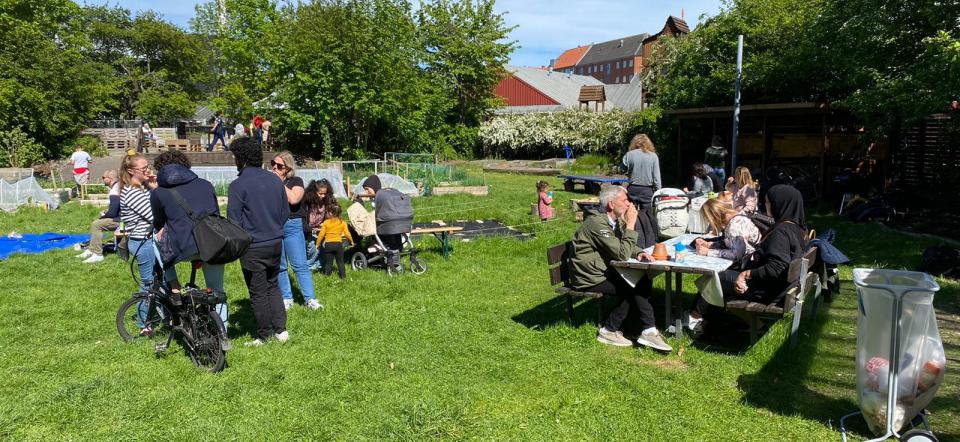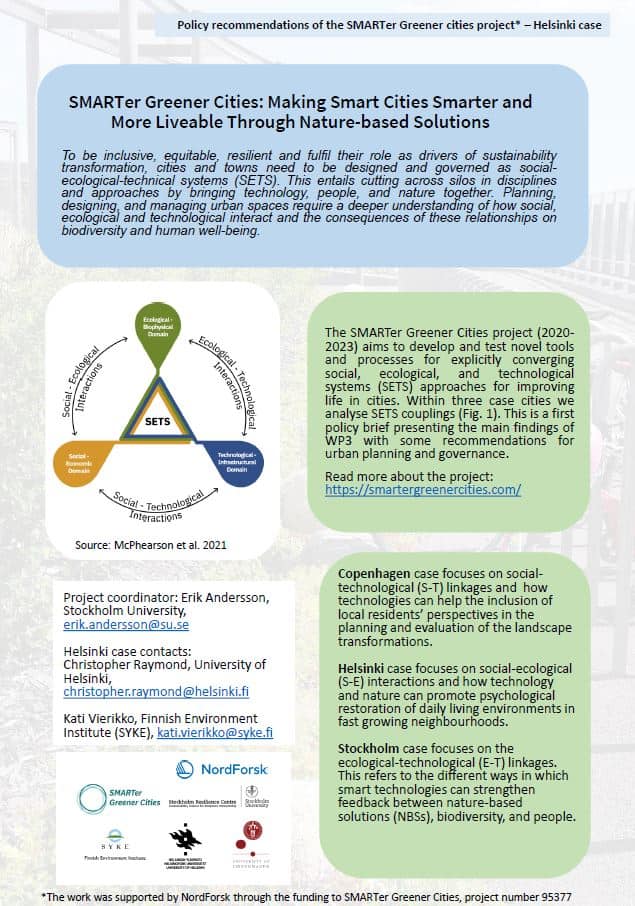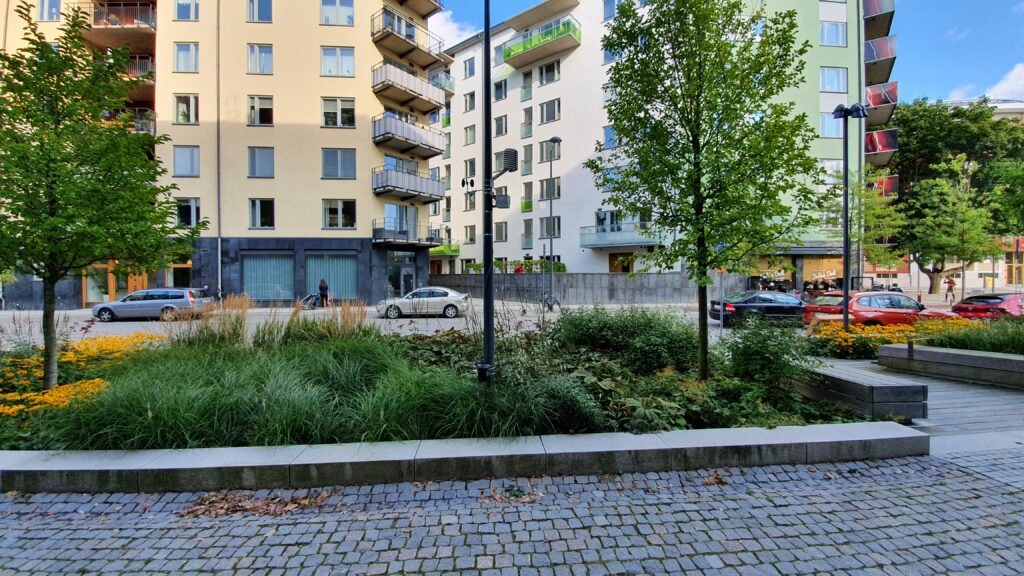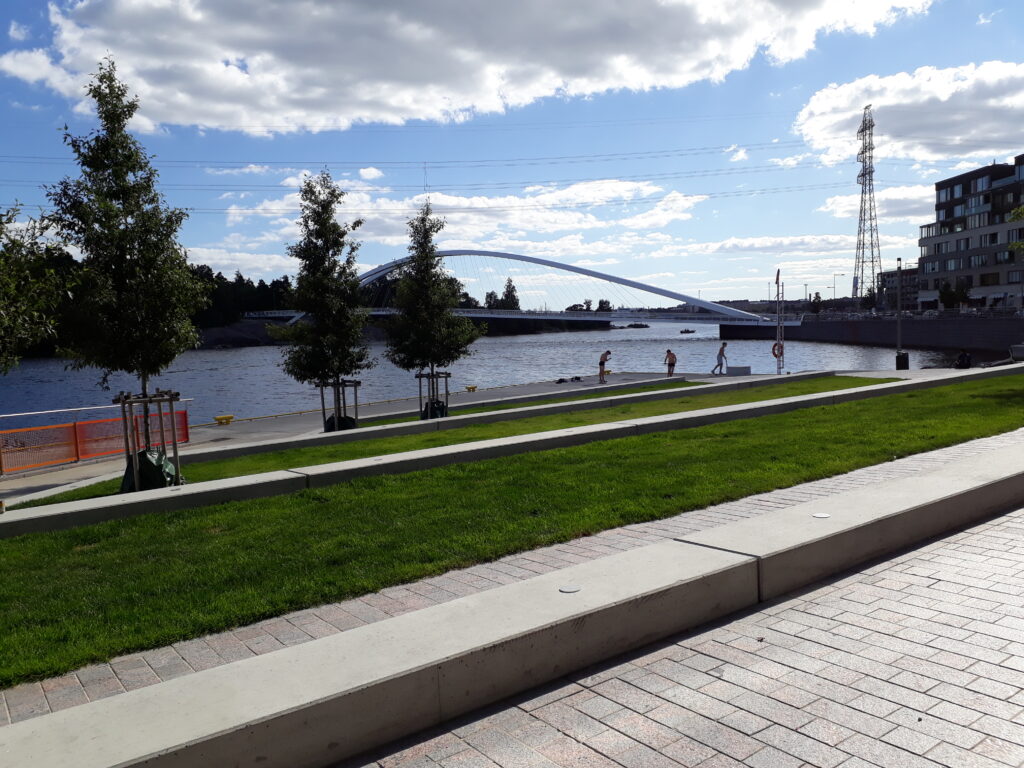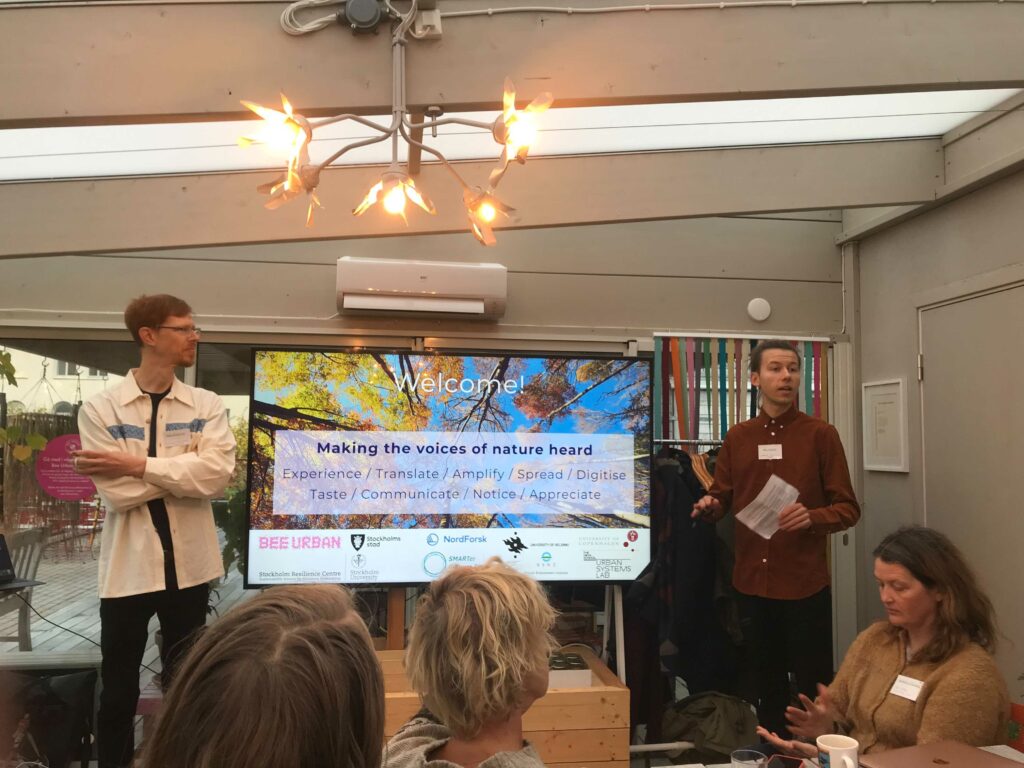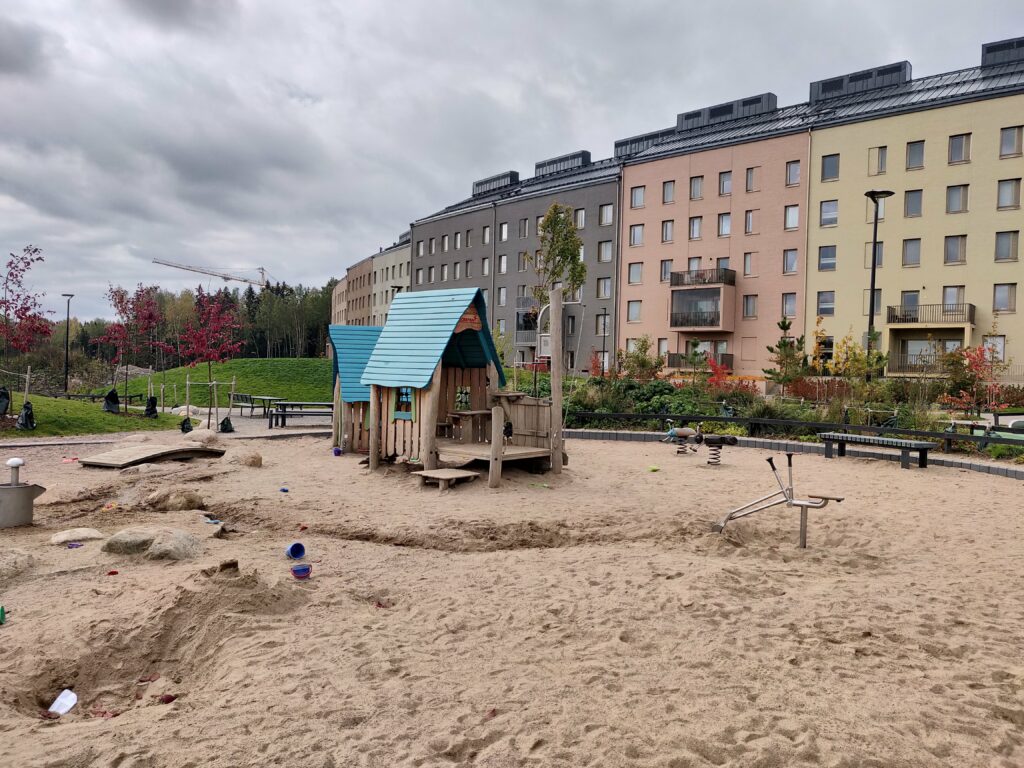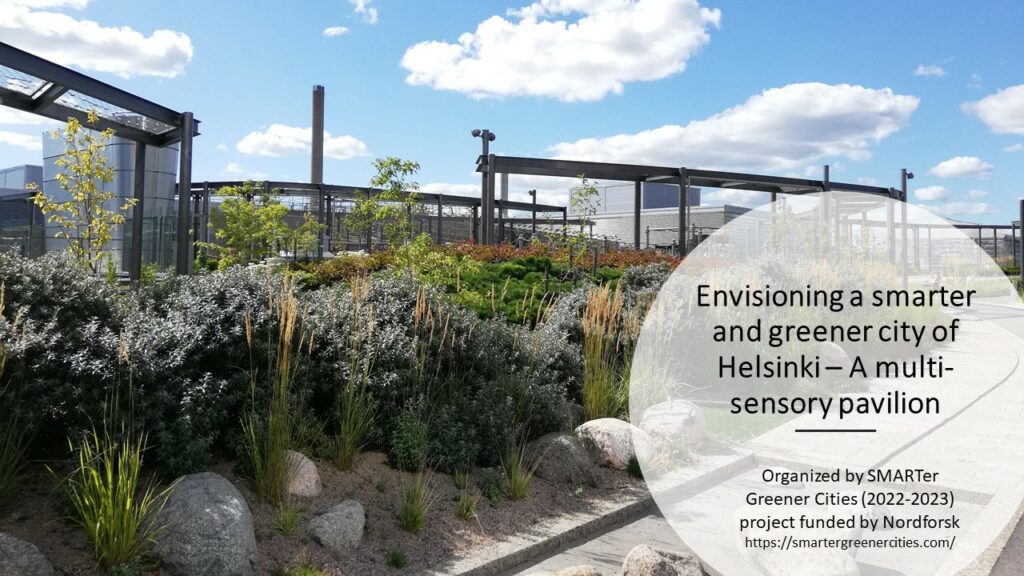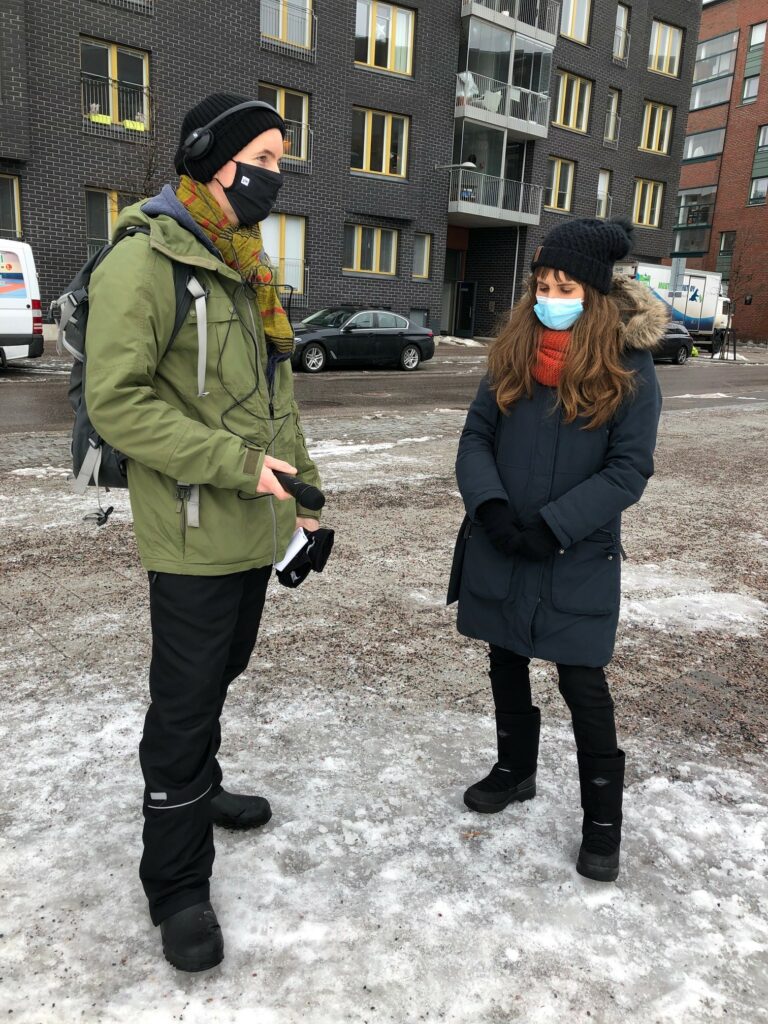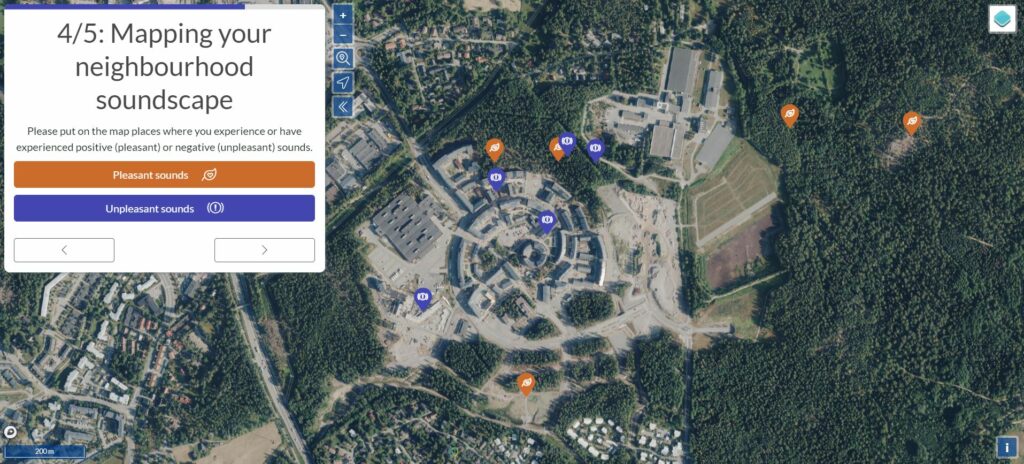Local wireless sensors enable smarter and greener plans
The second policy brief of the SMARTer Greener Cities is now published. Read more here. We propose recommendations for urban planners, developers and researchers based on one-year-long local weather observations at the biggest flagship of sustainable urban development in Sweden – Stockholm Royal Seaport. We deployed wireless weather stations at 18 sites across 6 different…
Green oases are important venues for socialising
How do we create green spaces in Nordic cities in line with the needs and wishes of their inhabitants? This question serves as a focal point of the SMARTer Greener Cities research project. In the Copenhagen case study area in Urbanplanen housing development, green spaces play an important role as a venue for socialising. Nordforsk…
The First Policy Brief is out!
The first policy brief of the SMARTer Greener Cities has now been launched. We propose recommendations for urban planners and researchers based on our research on how technology and nature can promote multisensory experiences and psychological restoration in two residential areas in Helsinki, Finland. Recommendations: Be smart and green with your plans It’s not…
New funding for a new collaboration and more sensors in Stockholm
SMARTer Greener Cities researchers Art Branny and Erik Andersson received funding from the Swedish Research and Innovation funder Vinnova to expand and extend their work with sensors and nature-based solutions in Stockholm. The project is led by the research institute of Sweden (RISE) and bring together a consortium of SMEs, real estate owners, researchers and…
Your Smarter Greener Neighbourhood – PPGIS survey results from Kalasatama and Kuninkaantammi
Which places do you value in your neighborhood in terms of aesthetics, biodiversity, and outdoor activities, and which views and sounds help you relax and forget about everyday worries? How pleasant do you perceive different landscapes such as parks, private yards, water areas or forests in your own neighborhood? Where do you experience positive…
Second living pavilion in Stockholm let Nature speak up
When modern life, especially in our cities, has obscured the fact that people still depend on nature and functioning ecosystems for their wellbeing – what do we do? Stockholm Resilience Centre together with local partners Bee Urban and City of Stockholm organized and hosted the second multi-sensory living pavilion in Stockholm on October 29, 2021….
The sounds of the (green) city
The Nordregio magazine published an article about the SmarterGreenerCities Helsinki case study in October 2021. The researchers conducted a PPGIS study in early 2021 that discussed the values and soundscapes in the study areas, Kuninkaantammi and Kalasatama. The aim was to understand the residents’ experience of urban and green spaces in the study sites. “Sounds…
The first living pavilion was successfully organized in Helsinki
The Finnish Environment Institute (SYKE) and the University of Helsinki organized the first multi-sensory living pavilion in Helsinki on Thursday 22.4.2021. The aim of the event was to to demonstrate possibilities for moving towards a smart and green city agenda by drawing upon new forms of sensors and citizen engagement technologies. The presentations involved talks…
YLE Radio Suomi interviewed project researchers
Yesterday (16.3.) we walked in Kalasatama and discussed about sounds of cities. What kind of sounds are accepted by citizens? Vesa Marttinen, the reporter of Yle Radio Suomi interviewed me and post doc Silviya Korpilo about ongoing multisensory PPGIS survey. The record of interview can be found here. The discussion is in Finnish.
A multisensory PPGIS survey in two developing neighbourhoods in Helsinki
Outdoor recreational areas provide us a range of experiences especially when we find ourselves surrounded by nature. There has been a focus in research and planning on the visual features of urban landscapes. Yet, we hear places as much as we see them. Smarter Greener Cities researchers in Helsinki are studying how citizens perceive and…
Project coordinator Associate Professor Erik Andersson, erik.andersson(at)su.se
Stockholm Resilience Centre (SCR), University of Stockholm
Project funder:



